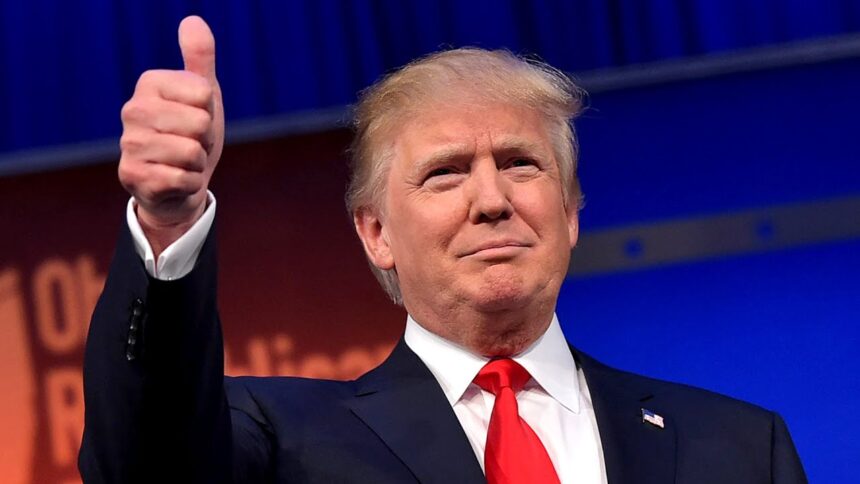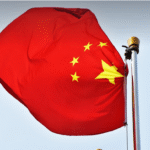U.S. President Donald Trump signed a pair of orders on Tuesday aimed at providing relief to automakers from the impending 25% import tariffs on auto components. The move, which includes offering carmakers two years to increase the percentage of domestic components in U.S.-assembled vehicles, seeks to soften the impact of the tariffs while encouraging greater U.S. production. The new rules will allow automakers to offset tariffs for imported auto parts up to 3.75% of the Manufacturer’s Suggested Retail Price (MSRP) for vehicles assembled in the U.S. through April 2026, and 2.5% for production through April 2027.
Trump’s visit to Michigan, a key state in the U.S. auto industry, comes just days before the tariffs are set to take effect. The announcement helped calm investor nerves and offered a temporary solution to the uncertainty surrounding the auto sector. “We just wanted to help them … if they can’t get parts, we didn’t want to penalize them,” Trump stated during his visit, signalling a partial reversal of his earlier tariff stance.
Read More: Trump’s Tariffs and Tough Talk Shaking the World’s Rules-Based Order
Industry Reactions and Continued Uncertainty
Despite the relief, the move was met with mixed reactions from industry leaders. Autos Drive America, a group representing major foreign automakers like Toyota, Volkswagen, and Hyundai, welcomed the partial relief but stressed that more action was needed to truly bolster U.S. auto manufacturing. “We appreciate the relief, but more must be done in order to turbocharge the U.S. auto industry,” the group said in a statement.
Meanwhile, Canadian officials, such as Candace Laing, president of the Canadian Chamber of Commerce, expressed concerns that the tariff fix fell short. “Only an end to tariffs provides real relief. Ongoing ups and downs perpetuate uncertainty, and uncertainty drives away business for both Canada and the U.S.,” Laing warned.
The continued uncertainty in the auto sector was evident on Tuesday when General Motors (GM) pulled its annual forecast, despite reporting strong sales and profits. GM also delayed a scheduled conference call with analysts until later in the week, once the full details of the tariff changes were known.
Also Read: Trump Tariffs Trigger Economic Shockwaves: Price Hikes, Revenue Shifts
Potential Trade Deal with India
In addition to the auto tariff changes, Trump’s administration is seeking broader trade agreements. U.S. Commerce Secretary Howard Lutnick revealed that a deal had been struck with a foreign nation to ease reciprocal tariffs. Although Lutnick did not disclose the country involved, he hinted that India could be the next target for a deal. “India is coming along great. I think we’ll have a deal with India,” Trump told reporters, raising expectations of a breakthrough in negotiations with the country.
This announcement helped further buoy stock prices, as the prospect of easing trade tensions lifted market sentiment. Trump’s administration continues its push to reduce the U.S. goods trade deficit, which hit a record high in March, partially driven by imports rushed in ahead of the new tariffs.
The Economic Toll of Tariff Uncertainty
The easing of the auto tariffs is part of Trump’s broader strategy to show flexibility in his tariff policies, which have contributed to global market instability. A recent Reuters/Ipsos poll indicated that only 36% of Americans approve of Trump’s handling of the economy, the lowest level of approval in his presidency.
The first quarterly GDP report under Trump’s tenure, expected to be released on Wednesday, is anticipated to show the negative impact of the tariffs on U.S. economic growth. Economists forecast a sharp slowdown in growth, with projections of just 0.3% annualized expansion in the first quarter, down from 2.4% in the final quarter of 2024.
As U.S. companies like UPS and Kraft Heinz announce significant layoffs or revised earnings forecasts, the broader economic implications of Trump’s tariff policies are becoming increasingly apparent. The unpredictable nature of these policies continues to create challenges for businesses as they struggle to plan for the future. “Every single prediction has been proved to be wrong,” said Yannick Fierling, CEO of Electrolux, reflecting the uncertainty that now defines global trade under Trump’s leadership.
Click here to read related business news like this.






